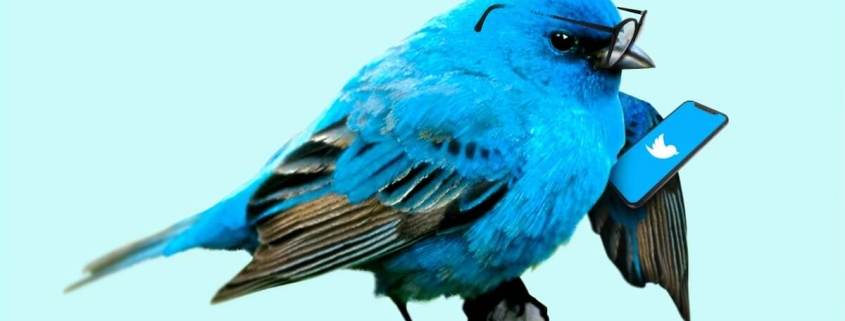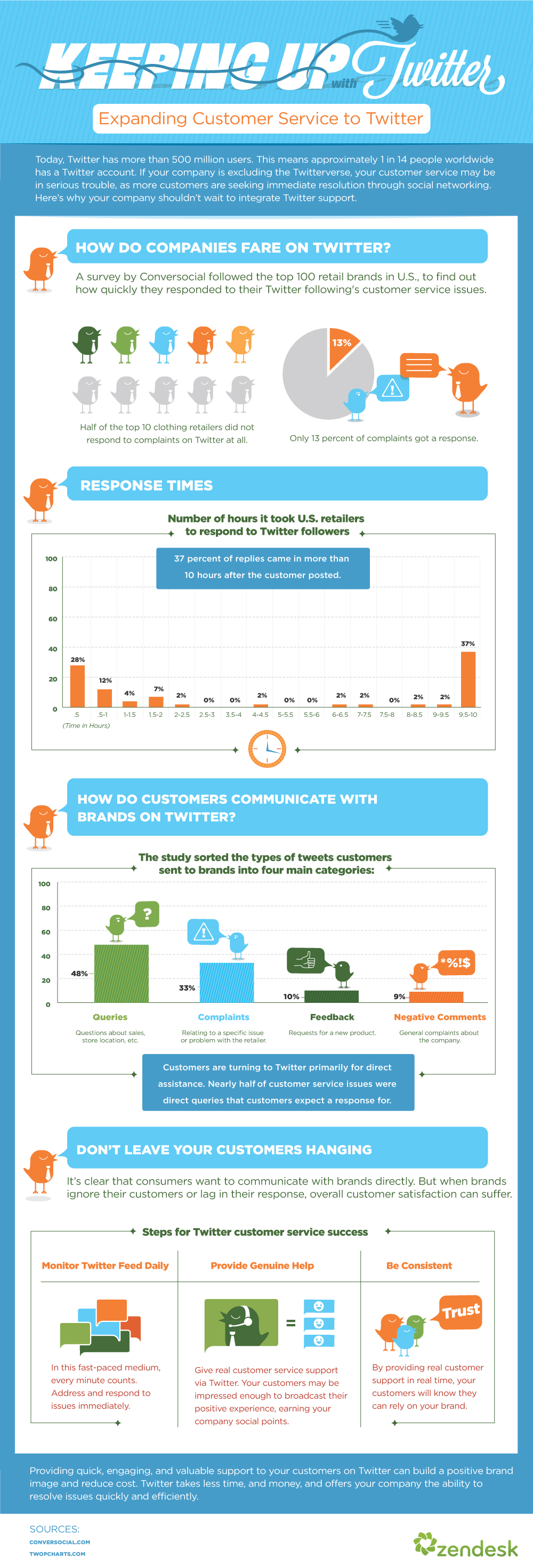While we know Twitter can be a great platform for marketing and PR, allowing for the near-instantaneous, mass distribution of news, content and press, what about using Twitter for customer service? Many companies may shy away from such a public forum for interacting with disgruntled consumers, but Twitter has become the primary soap box for many to voice not only outrage, but also satisfaction with both products and services alike.
So, what is a company to do? Only retweet happy users’ tweets and blatantly ignore complaints? With more and more people posting their gripes on the popular social media platform, companies may not have much of a choice over whether or not to use Twitter for customer service. Being seen as ignoring customers may even be far worse!
In a recent Washington Post article, Daria Steigman, founder of Social Biz Smarts, noted that “because of Twitter’s searchability, a business’s ‘dirty laundry’ is very visible — but so is its ability to respond to angry as well as satisfied customers.”
While much customer service may go on behind the scenes through direct messages and email, a public tweet simply apologizing for the user’s trouble and directing them to an email address or solution could be reputation-saving for the company. What’s more, this level of engagement helps make companies seem more personal and strike a good balance between both talking and listening. Many companies use social platforms simply to talk, talk, talk about themselves, which can feel very self-serving, instead of using social media to listen, engage and respond to what else is going on in the industry and interact with customers, partners, prospects and other industry thought leaders.
Despite being such a public forum, companies shouldn’t fear using Twitter for customer service, as customer tweets aren’t always negative. In a recent study from ZenDesk, the customer service software company found that customer tweets sent to brands were primarily innocent questions about sales, store locations, etc. at 48 percent and 10 percent were feedback or requests for a new product, whereas 33 percent were complains relating to a specific issue and only 9 percent were negative comments about the company.
If you issue a tweet about a company or brand, do you expect them to get back to you on Twitter? There have been many customer service success stories, including Cision, Comcast and JetBlue – so, will more companies follow suit and start addressing customer issues via the ever-growing, social media platform? It only seems logical that if consumers want to use it for such, companies should follow suit.
What do you think? And should PR agencies recommend this practice as a default?
This post was first published by Meredith L. Eaton on March Communications’ blog, PR Nonsense. Please note that this is an old article and some of the conclusions presented here may not apply any more.


